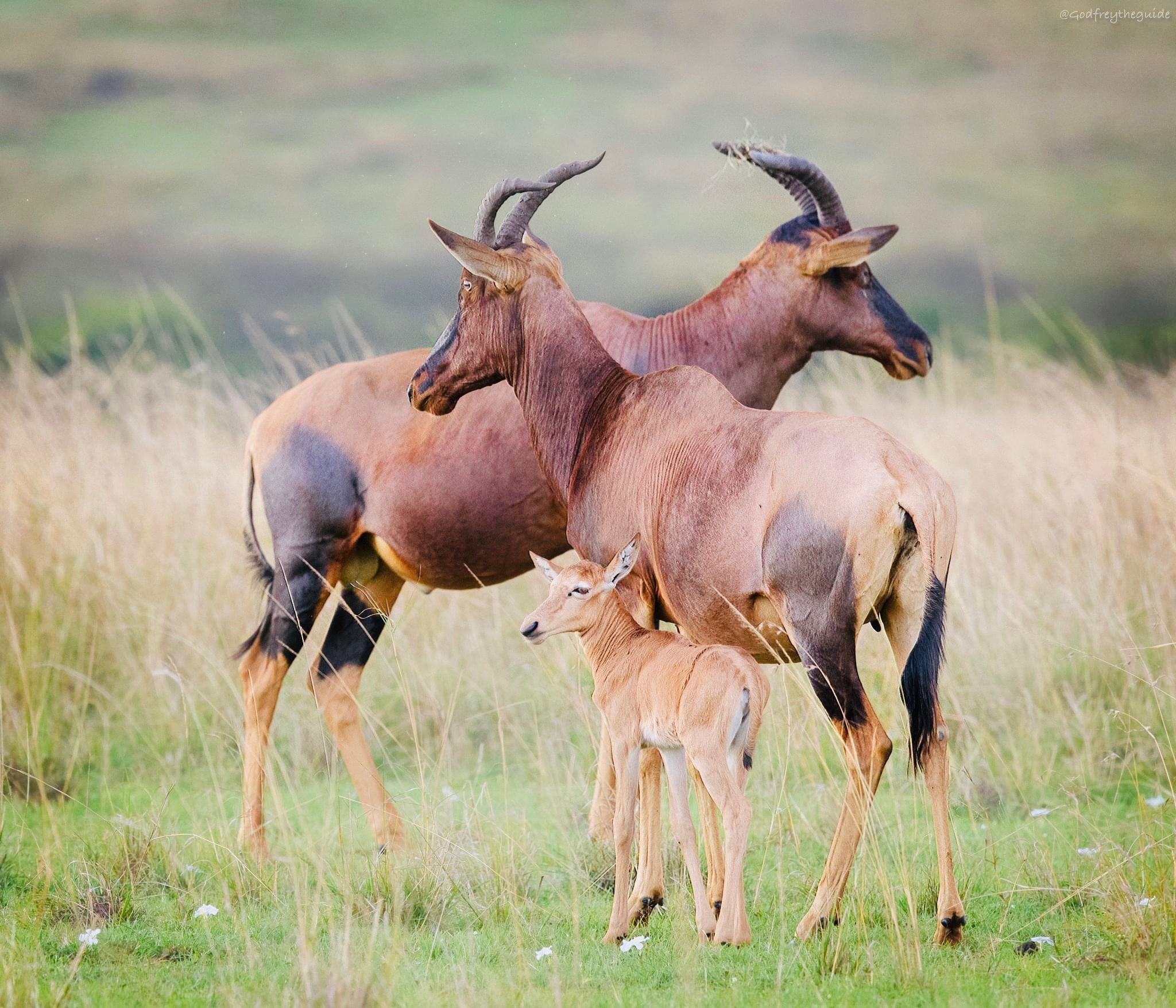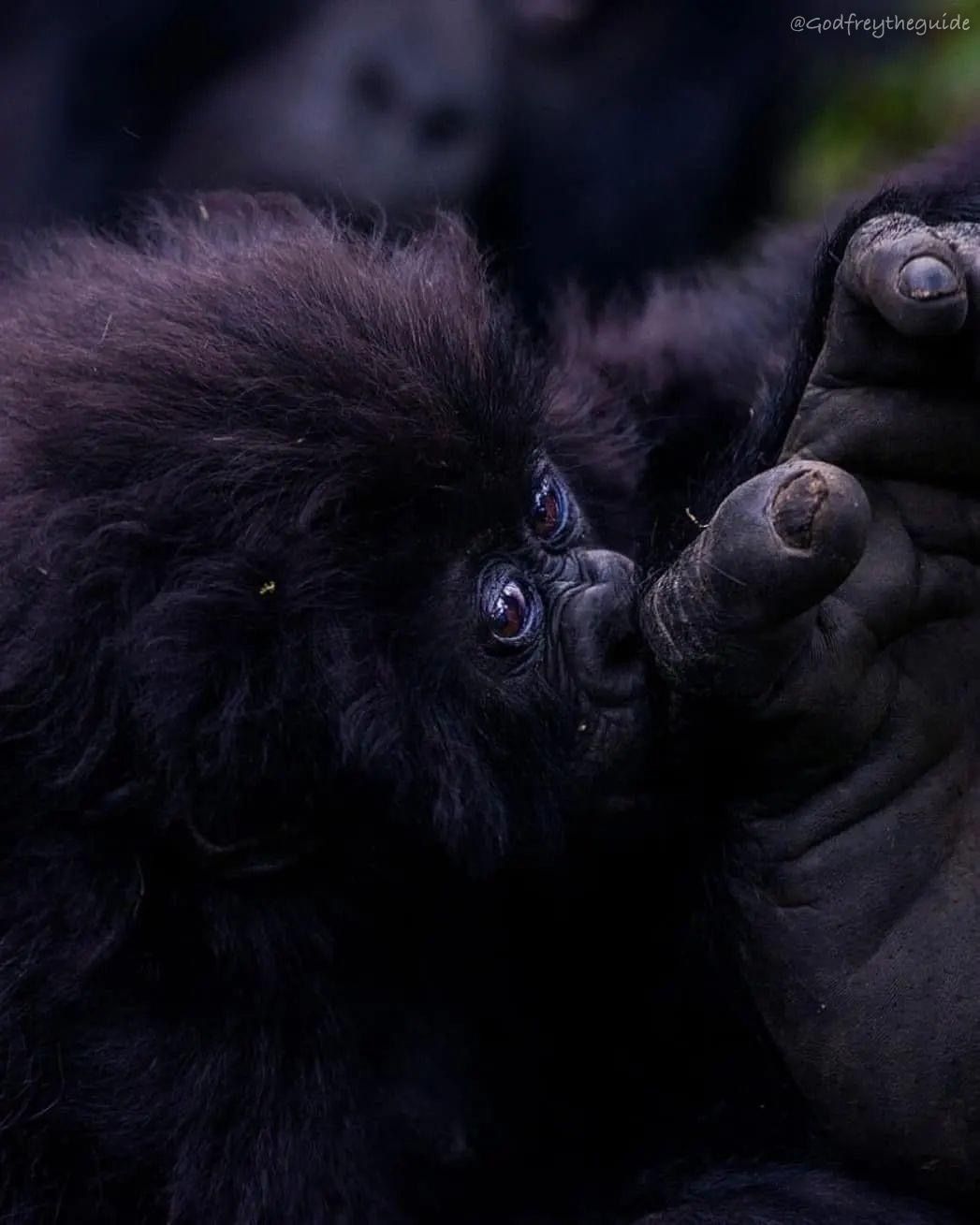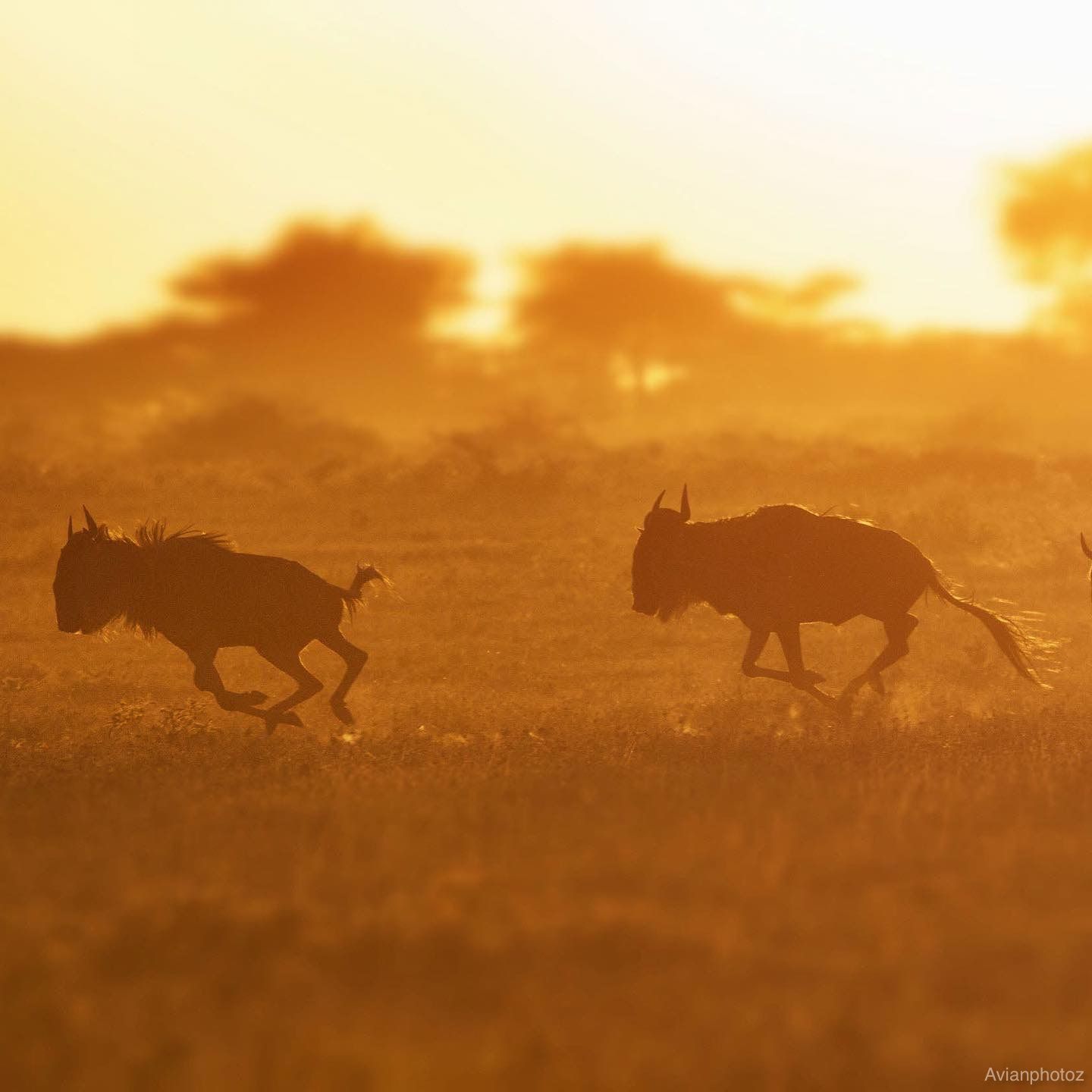 In Uganda, wildlife is protected by the Government on behalf of, and for the benefit of, the people of Uganda (The Uganda Wildlife Act, 2019). The Government of Uganda established Uganda Wildlife Authority (UWA) under the Uganda Wildlife Act, Cap 200 to manage wildlife in protected areas including National Parks, Wildlife Reserves, Community Wildlife Management Areas, Wildlife Sanctuaries among other areas following strict conservation procedures that limit or entirely exclude human activities. Wildlife is officially managed in gazetted protected areas such as Queen Elizabeth, Semuliki, Lake Mburo, Murchison Falls, Kibale, Mount Elgon, Mgahinga Gorilla, Rwenzori Mountains, Bwindi Impenetrable and Kidepo Valley. Wildlife that strays onto private land can be the impetus for conflicts between the government and private landowners when wildlife compete for resources with livestock or destroy crops on agricultural lands.
In Uganda, wildlife is protected by the Government on behalf of, and for the benefit of, the people of Uganda (The Uganda Wildlife Act, 2019). The Government of Uganda established Uganda Wildlife Authority (UWA) under the Uganda Wildlife Act, Cap 200 to manage wildlife in protected areas including National Parks, Wildlife Reserves, Community Wildlife Management Areas, Wildlife Sanctuaries among other areas following strict conservation procedures that limit or entirely exclude human activities. Wildlife is officially managed in gazetted protected areas such as Queen Elizabeth, Semuliki, Lake Mburo, Murchison Falls, Kibale, Mount Elgon, Mgahinga Gorilla, Rwenzori Mountains, Bwindi Impenetrable and Kidepo Valley. Wildlife that strays onto private land can be the impetus for conflicts between the government and private landowners when wildlife compete for resources with livestock or destroy crops on agricultural lands.
Although the Uganda Wildlife Authority has the mandate to manage wildlife outside the protected areas. it does not because it has no control over private lands. Private land and landowners have a right to use their land the way they wish (Ugandan Constitution, 1995). The National Land Use Policy, 2006 cites weakness of policy and legal mechanisms for wildlife conservation outside protected areas. Wildlife on private land is largely unprotected. Wait for the 2rd episode next week.
 Wildlife conservation and related management matters are primarily considered a government level responsibility in Uganda. Species management happens through public agencies, which often ignore the role of private landowners for conserving species on their land. Not involving private landowners of private ranches, communal grazing lands and farms in the conservation of wildlife can partly be a driver of human-wildlife conflict and the ultimate decline of wildlife on unprotected lands. By involving private landowners in wildlife conservation matters, wildlife can be better protected when they are on private lands.
Wildlife conservation and related management matters are primarily considered a government level responsibility in Uganda. Species management happens through public agencies, which often ignore the role of private landowners for conserving species on their land. Not involving private landowners of private ranches, communal grazing lands and farms in the conservation of wildlife can partly be a driver of human-wildlife conflict and the ultimate decline of wildlife on unprotected lands. By involving private landowners in wildlife conservation matters, wildlife can be better protected when they are on private lands.
Studies in Uganda’s southwest for example show diverse wildlife on private lands as compared to protected lands (Guard, 1991; Averbeck, 2002; Rannestad et al., 2006). A study of dung counts in the tropical savanna ecosystems of Lake Mburo National Park (LMNP) and the adjacent ranchlands in Kiruhura District, Uganda revealed a greater diversity of wild mammals on ranchlands than in protected areas (Nyamukuru, 2019). The grasslands and woodlands inside and outside of the park contained a diversity of mammalian wildlife. The ranchlands had greater diversity and abundance of zebra Equus quagga, eland Taurotragus oryx, impala Aepyceros melampus, waterbuck Kobus ellipsiprymnus, African hare Lepus victoriae, Bush duiker Sylvicapra grimmia, Monkey Cercopithecus aethiops and Hyaena Crocuta crocuta. wait for the next episode two next week
RE: URGENT Matter to Rescue 80 Bureau of Land Management branded horses & burros from immediate endangerment
November 10, 2022
Dear President Biden and Secretary Haaland,
Today there are 80 federally protected horses and burros under the present threat of sale and export for slaughter in 8 States and are in urgent need of rescue.
We need your immediate help to instruct the Bureau of Land Management today to rescue 80 BLM-branded mustangs and burros from Livestock-kill buyer auctions and to save them now from the life-threatening danger of harm and the most brutal death in 1. Bowie, Texas, 2. Stroud, Oklahoma, 3. Shippensburg, Pennsylvania, 4. Peabody, Kansas, 5. Cleveland, Tennessee, 6. Asheboro, North Carolina, and 7. Cleburne, Texas, 8. Rusk, Texas, 9. Rollin hill Farm, Virginia, and 10. Southern Wisconsin. (Please see links below)
An emerging crisis is happening for the government-captured wild horse and burros and the 80% of Americans who oppose the grisly slaughter of these magnificent beings due to a massive influx of BLM-branded equines showing up in large numbers across the country in livestock slaughter auctions.
To resolve this tragic disaster, we need your help to issue an executive order, a "stay on the export of horses and burros for slaughter," to be executed to spare these magnificent and federally protected icons of freedom from unimaginable suffering.
The Extortion of BLM-branded horses and burros:
The livestock auctions force sanctuaries and citizens to bid against kill buyers for the BLM- branded horses. This extortion is creating an enormous burden to pay exorbitant prices to save these horses from horrific suffering that is unjustly and enormously falling upon citizens, sanctuaries, and rescues due to the BLM's expedited mass removals of wild horses and burros from public lands and the BLM's enticing $1,000. the adoption incentive program, many of the sanctuaries are presently full.
It is incredibly unethical to place the formerly free wild horses after capture in inhumane and life-threatening conditions and then charge back to citizens, to have no choice but to pay exorbitant fees to kill buyers, to save them from export for tortuous slaughter.
Solutions, in summary, we implore you to:
We are ready to work with you to help shift the paradigm to implement compassionate solutions that will benefit the survival of our lands, wild ones, indigenous and surrounding communities, and all stakeholders today and for future generations.
"Climate change is real; we need to make changes as soon as we can, or else, we are self- destructing. The help we receive from wild horses will help us work on positive solutions for wild lands and the climate change crisis that Mother Earth and we all are facing. Horses are sacred to me, my people, and many people, and I ask that you do all within your power to protect them today." ~ Chief Lee Plenty Wolf, Director on LWH Board
The Free Roaming Wild horse and Burro Act of 1971 clearly state that the BLM shall not endanger or cause suffering or harm to the horses. The BLM's incentive program, and lack of a safety net to protect the horses after adoption from export to Mexico and other countries for sale to the most inhumane, brutal slaughter, are causing immense suffering and harm for thousands of horses.
The positive intent of this Law enacted is clear; a great deal of entrustment is granted to the BLM and its affiliates to honor its true purpose, and we are seeing many misinterpretations and wrongful manipulation of this Law harming the horses and burros and the land.
We need your help now to close these loopholes to truly protect the last of our wild horses and burros and our grassland ecosystems to survive and thrive today and for future generations to inherit.
Thank you in advance for your immediate address of this urgent situation, from all of us, and all the wild horses and burros,
Love Wild Horses!® a California grassroots Nonprofit 501C3 lovewildhorses.org Office- 833- 2ReWild heartofsky@lovewildhorses.org
LWH Directors on the Board:
Jetara Séhart, Founder and President
Chief Lee Plenty Wolf, Spiritual Leader and award-winning Prayer Drummer and Singer of the Oglala Lakota Nation, Founder, and President of White Horse Creek Council 501C3
Evelyn Arce, Founder, Indigenous Resilience Consulting LLC
Michael Stocker, Founder and Executive Director Ocean Conservation Research
Core Members:
Jackie Oliveri, Co-Founder, Nationwide Wild Horse Freedom Rallies, Core Member of Advocates for Wild Equines AWE, and National Coordinator for Love Wild Horses®
LWH Voices for the Wild Hones and Wild lands:
Dewey and Penny Bunnell, Rock Star and his beautiful wife, Founding Member of the band America
Links to the Livestock Auctions, where wild horses are suffering, and in immediate danger of export for slaughter and in need of rescue today:
# of Horses and Burros in URGENT Danger:
1. 11 Bowie, in TX: https://www.facebook.com/BowieTexasHorses
2. 34 Stroud's OK: https://fb.watch/gHz4k8guP3/?fbclid=IwAR1f0U7pqiOv486eeqyPHRMYjjin1STpYfBEfStydtIfXT0 gjc_g4WnlHN8
3. 2 in Rotz in PA: https://m.facebook.com/people/Rotz-Livestock/100082195336491/?paipv=0&eav=AfbM_JrrmoVvM1vnkyBFpylo7dm_ZVqC2W2oGie YwT LbJjJ6uaCOSCNVxAaGDlJWKx
4. 3 Peabody's in KS: https://m.facebook.com/Peabody-Kansas-Horse-Pen- 101725224522129/?paipv=0&eav=AfbTi1vW_bsTrJAwvBWj1iF5DPiJyqIwqEcI8agNTrR5jd13um1 z0 qO98AUw5pD0mOs
5. 1 Saving Slaughter bound horses, in
TN https://m.facebook.com/tspsavingslaughterboundhorses/?paipv=0&eav=AfYjQoA0gzJfzLQEUG G2-4WMZ7SHT7_oVEEWldxUAGaRjscKvy9TyTpTNmf4FLl2DTM
6. 1 Last Chance-in
NC: https://m.facebook.com/lastchancekillpenhorses/?paipv=0&eav=Afbzf3PPM1DamqmzqrCVd_IrhEGW4emESUkAwmLoFxy2cDeFQsj0y02nDrNqTzz8aP0
7. 15 -Load of Mustangs-Cleburne, in TX
: https://m.facebook.com/cleburnehorseauction?eav=AfaHuGHAunUeSeAkmozH5yI0AmNfR83tt 9oC poojMpQWEnLFh229TdsFG6HZ140_43g&paipv=0
8. 1 Rusk, Texas:
9. 1 Rollin Hill Farm in VA.: https://www.facebook.com/profile.php?id=100063638406549
10. 1 Southern Wisconsin: https://www.facebook.com/groups/148134633436039/?ref=share
Additional Links for Reference: https://ladyfreethinker.org/three-wild-horses-saved-by-indigenous-advocates-working-to- prove- letting-them-roam-helps-the-land/ https://apnews.com/press-release/ein-presswire-newsmatics/science-california-united-states-horses- congress-bcc27c0fb3b9410c3b2eb1101b4b5b86 https://environment.einnews.com/pr_news/569756372/a-wild-horse-and-earth-healing-study- begins- in-nevadahttps://acrobat.adobe.com/id/urn:aaid:sc:VA6C2:dc647a2c-472b-4ff2-8115-a70e3202d2d8https://www.internationalenvironmenttimes.com/article/554604672-a-rock-star-lakota-chief- and- indigenous-filmmakers-unite-in-let-them-live-love-wild-horses-a-raw-short-film https://globalwarming.einnews.com/pr_news/548241235/wild-horses-a-natural-resource-for- staving- off-wildfires-and-the-impacts-of-global-warm
Contact President Biden:
CALL: 202-456-1111 FAX 202-456-2461
To Contact Secretary Deb Haaland
Call: 202-208-3100 FAX: 202-208-5515
SIGN ON TO OUR LETTER HERE
https://lovewildhorses.salsalabs.org/StopSlaughterofWildEquines
 Late October and early November see the last of the wildebeest river crossings before the herds begin to move to the edge of the short-grass plains in southern Serengeti for the unparalleled spectacle that is their birthing season. As the wildebeest empty out, so do the people, and these three months in the Mara before the festive season mark a spectacular time to roam and explore without the distraction of other vehicles and the millions-strong herds. The rest of the game comes to the fore, as does the cultural element in Serengeti South: the Hadzabe make for fascinating walking companions as they reveal their homeland to you on foot. This time of year yields itself to long lazy stays, with some adventure fly camping and safaris on foot thrown into the mix. http://interiorsafarisea.com/category/tanzania-safaris/
Late October and early November see the last of the wildebeest river crossings before the herds begin to move to the edge of the short-grass plains in southern Serengeti for the unparalleled spectacle that is their birthing season. As the wildebeest empty out, so do the people, and these three months in the Mara before the festive season mark a spectacular time to roam and explore without the distraction of other vehicles and the millions-strong herds. The rest of the game comes to the fore, as does the cultural element in Serengeti South: the Hadzabe make for fascinating walking companions as they reveal their homeland to you on foot. This time of year yields itself to long lazy stays, with some adventure fly camping and safaris on foot thrown into the mix. http://interiorsafarisea.com/category/tanzania-safaris/